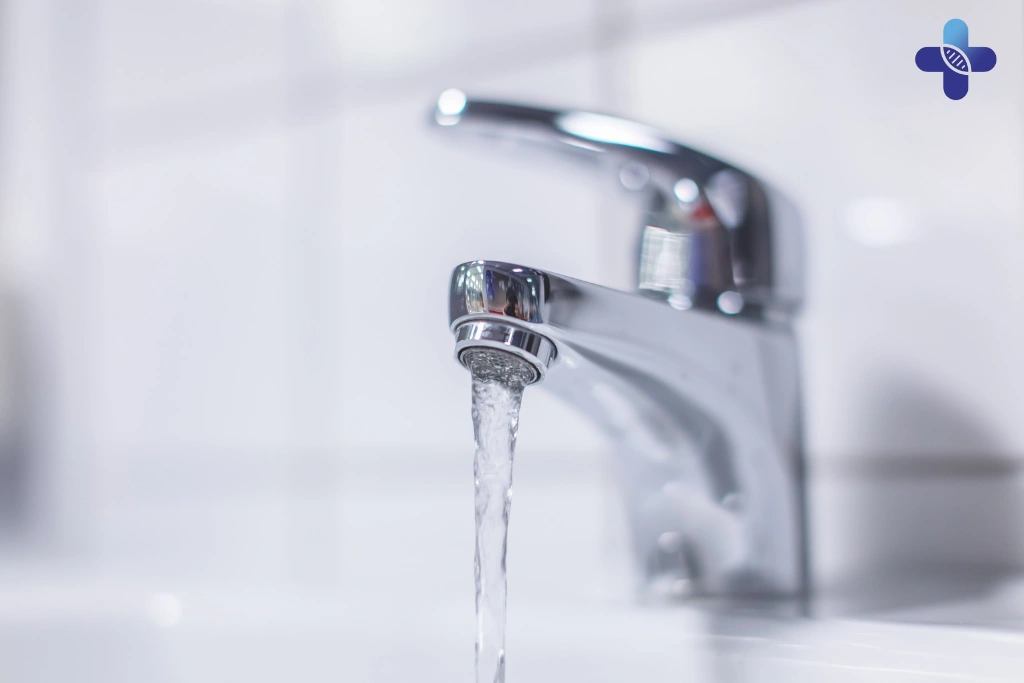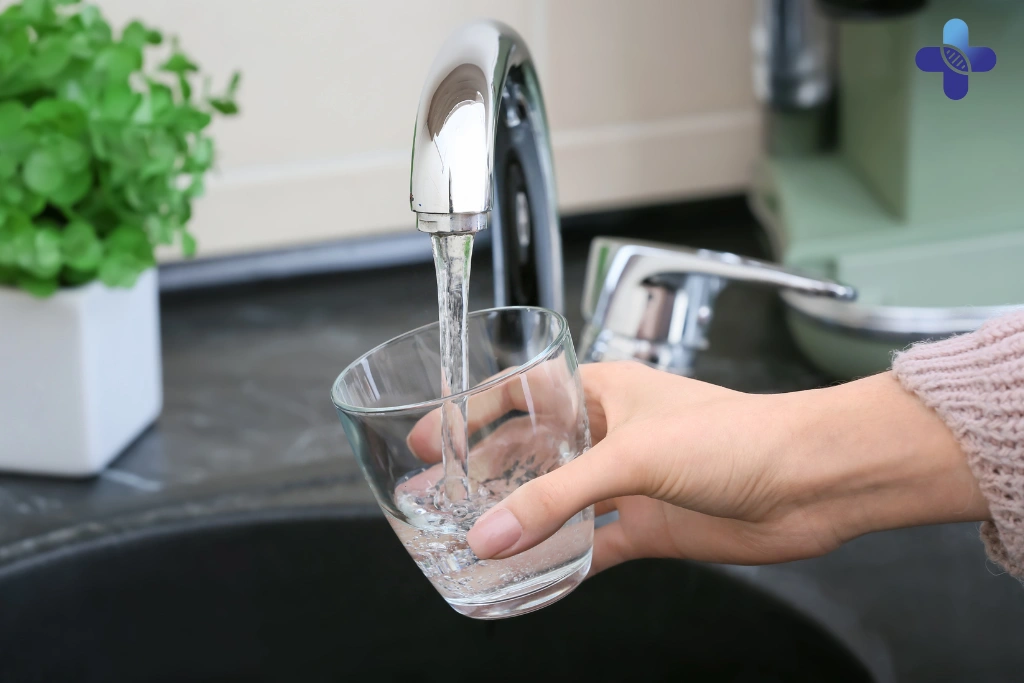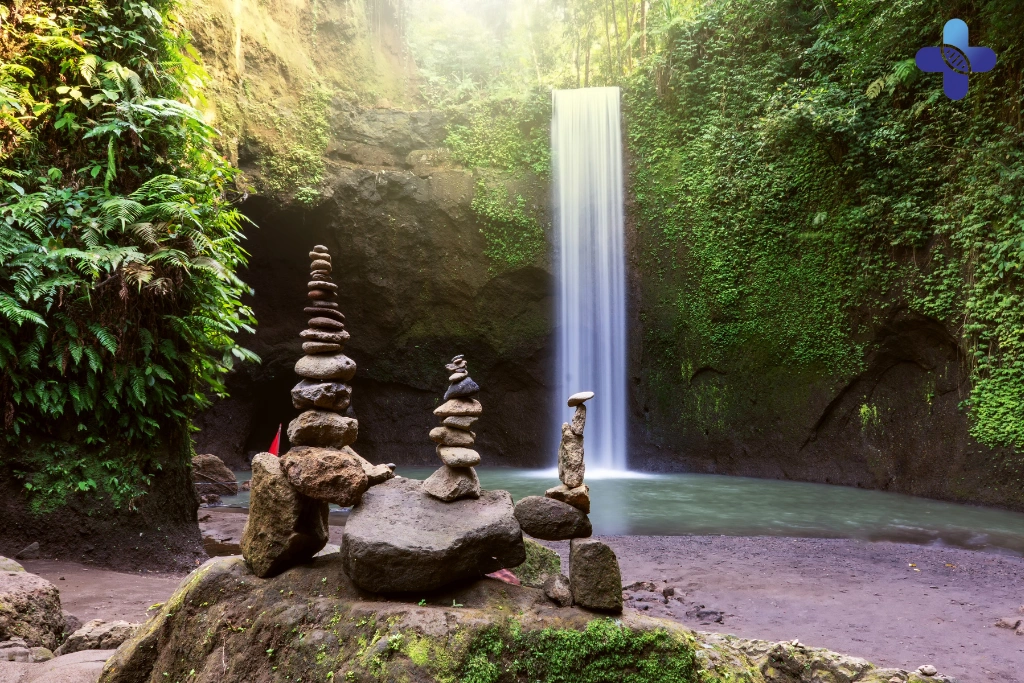No, you should not drink tap water in Bali. But staying safe and hydrated on the island is easier than you think. Whether you’re a first-time visitor or moving to Bali long-term, knowing how to handle water and food safety will save you from unnecessary stomach issues. In this guide, Life Everyouth explains why avoiding tap water matters, what kind of ice is safe, how to enjoy local food confidently, and how Life Everyouth Bali—a trusted Medical Clinic in Bali—can help if you ever feel unwell.
Can You Drink Tap Water in Bali? The Short Answer and The Full Story

The short answer is no, you should not drink the tap water in Bali. But don’t worry—staying healthy and hydrated here is simple once you know the basics. Many travelers ask this same question before arriving, and it’s completely valid. Understanding Bali’s water safety is essential to avoid unnecessary stomach problems or dehydration during your stay.
Even though the island is full of natural beauty and warm hospitality, the local water infrastructure isn’t built for direct consumption. That doesn’t mean you’re at risk constantly. With a few smart habits and awareness of how to access safe water, you can fully enjoy your time in Bali without worrying about your health.
This guide from Life Everyouth Bali will walk you through everything: why tap water isn’t drinkable, how to spot safe ice, food safety tips, and what to do if you get Bali Belly. As a trusted Medical Clinic in Bali, Life Everyouth is here to help tourists and expats navigate these health concerns with clarity, care, and convenience. If you’re looking for answers about drink tap water Bali, you’re in the right place.
Why Isn’t Bali’s Tap Water Potable?
The issue with tap water in Bali isn’t the source—it’s the delivery system. Bali’s natural water sources are often clean, but the aging pipe infrastructure allows for potential contamination before the water reaches your tap. Old pipes, inconsistent treatment methods, and possible exposure to bacteria or parasites make the water unsafe for direct consumption.
This means even if the water looks clear and has no odor, it could still carry harmful microorganisms. That’s why both locals and expats rely on bottled or filtered water daily. As a Medical Clinic in Bali, Life Everyouth regularly sees patients who experience stomach problems due to accidental tap water intake—usually while brushing teeth or from ice made with untreated water.
To avoid unnecessary health risks, it’s best to stick with bottled or gallon water. It’s a small habit that makes a big difference for your overall wellness, especially while traveling. If you’re searching for trusted advice on drink tap water Bali, Life Everyouth Bali is here to guide you with medically backed facts and simple solutions.
The Big Question: Is Ice in Bali Safe to Consume?
Many travelers arrive in Bali with one firm warning in mind: “Never trust the ice.” It’s a common belief—but is it really true?
The reality is more reassuring. While it’s wise to be cautious, most ice served in restaurants, cafés, and hotels that cater to tourists is perfectly safe. These places usually get their ice from certified suppliers who use purified water and follow strict hygiene standards. So, the fear that all ice is made from tap water is outdated.
One practical tip: look at the shape of the ice. Safe ice in Bali is often crystal clear, tubular, and has a small hole in the center. This type is machine-made by licensed distributors. In contrast, cloudy or irregular-shaped ice, especially in smaller warungs, might be made with untreated tap water.
At Life Everyouth Bali, we often get asked is ice safe in Bali by patients worried about stomach issues. As a leading Medical Clinic in Bali, we recommend being observant—especially in more rural areas. When in doubt, skip the ice or politely ask about its source. Your health and hydration are too important to leave to chance.
5 Golden Rules for Safe Eating & Drinking in Bali

Avoiding food-related illness in Bali doesn’t require extreme measures—it just takes a little awareness. Whether you’re a first-timer or a seasoned visitor, these five simple habits will help keep you healthy and confident while enjoying local cuisine. At Life Everyouth Bali, a trusted Medical Clinic in Bali, we’ve seen firsthand how prevention makes all the difference.
Stick to Bottled or Gallon Water, Always
The safest way to stay hydrated in Bali is by drinking sealed bottled water or gallon water provided by your villa or hotel. Brands like Aqua, Cleo, and Le Minerale are widely available and trusted. In most villas and guesthouses, you’ll find a large water dispenser—referred to locally as a “gallon”—offering clean drinking water anytime.
This simple switch protects you from the risks of drinking from the tap. At Life Everyouth, we often advise visitors to always check the seal on bottles and refill from trusted sources only. Safe hydration is your first defense against stomach issues in Bali.
Brushing Teeth, Showering, and Washing Fruit
Brushing your teeth with tap water is common among locals, and many tourists do it without issue. But if your stomach is sensitive or you’re in Bali short-term, using bottled water is the safer bet. Showering is completely safe—just avoid swallowing water.
For washing fruits or vegetables, we recommend using filtered or boiled water, especially if you plan to eat them raw. At Life Everyouth Bali, a reliable Bali Medical Clinic, we’ve seen how these small daily habits can prevent major discomfort during your holiday.
Choose Your Warung Wisely: The “Busy” Rule
Local eateries, or warungs, offer some of Bali’s most authentic flavors. But not all are created equal. A smart rule? Choose a warung that’s busy—especially with locals and tourists alike. High turnover means the food is fresh and trusted.
When our patients ask where to eat safely, we always suggest looking for places with steady crowds, clean food prep areas, and visible hygiene standards. Life Everyouth, as a go-to Medical Clinic in Bali, encourages enjoying local dishes—but with a discerning eye.
Be Cautious with Raw Foods
Salads, sushi, and smoothies sound great in tropical heat—but raw ingredients carry more risk, especially for new arrivals. We suggest starting your Bali culinary journey with fully cooked meals. Once your stomach adjusts, you can enjoy more variety.
If you experience stomach discomfort, raw foods are often the first thing we ask about at Life Everyouth Bali. For safer dining, choose cooked veggies, grilled meats, and avoid ice or garnishes in small warungs unless you’re confident in their hygiene practices.
Peel Your Own Fruit
Fruits like bananas, mangos, and rambutans are safe when you peel them yourself. The outer skin protects the edible part from bacteria and contaminants during handling or transport.
At Life Everyouth, we remind travelers that even clean-looking fruit can be risky if pre-sliced or served without knowing how it was washed. Peeling your own ensures that you’re not accidentally ingesting anything unsafe. It’s one of the easiest habits to adopt for your health while traveling in Bali.
What to Do if You Get “Bali Belly”
Even with the best precautions, stomach trouble can still happen. “Bali Belly” is a common term for travel-related digestive issues—usually caused by unfamiliar bacteria, food, or water. The first symptoms are easy to spot: abdominal cramps, nausea, bloating, and diarrhea that may come on suddenly.
When this happens, the most important thing is to stay hydrated immediately. Dehydration sets in fast, especially in Bali’s humid climate. Start sipping bottled or electrolyte-rich fluids and avoid coffee, alcohol, or anything acidic. Oral rehydration salts (ORS) are a helpful travel companion.
At Life Everyouth Bali, we treat hundreds of visitors dealing with stomach distress every year. As a leading Medical Clinic in Bali, we offer direct, effective solutions.
For fast and effective recovery from dehydration, our at-home IV Drip service in Bali can replenish your fluids and nutrients directly. If symptoms are severe or you need a professional diagnosis, our 24-hour doctor on call is ready to help you wherever you are. And if you want to understand Bali Belly better, this complete guide breaks it down.
At Life Everyouth, we believe no one should lose vacation days over something preventable. Our experienced team is here to make sure your recovery is quick, safe, and stress-free.
Conclusion Can You Drink Tap Water in Bali? A Guide to Food & Water Safety

Staying safe while enjoying food and drinks in Bali doesn’t have to be complicated. With a few simple habits—like avoiding tap water, checking your ice, choosing trusted eateries, and starting with cooked meals—you can confidently explore the island’s culinary delights without worry.
At Life Everyouth Bali, we’re here to support your health throughout your journey. As a trusted Medical Clinic in Bali, we’ve helped countless travelers recover from Bali Belly, stay hydrated in the heat, and access professional care when it’s needed most. If you’re ever unsure or feel unwell, our team is just a call away—with IV Drip therapy, doctor on call, and compassionate service available wherever you are on the island.
Frequently Asked Questions (FAQ) Can You Drink Tap Water in Bali? A Guide to Food & Water Safety
So, to be 100% clear, I should not drink tap water anywhere in Bali?
Yes, to be completely safe, do not drink tap water anywhere in Bali—including in upscale hotels, villas, or restaurants. The issue is not with the water source, but with the delivery system and potential contamination. Always stick to sealed bottled water or gallon dispensers provided by your accommodation. At Life Everyouth Bali, a trusted Medical Clinic in Bali, we strongly advise this as a basic health precaution.
Is it safe to brush my teeth with tap water?
Most travelers brush their teeth with tap water and experience no problems. However, if you have a sensitive digestive system or want to avoid all risk, use bottled water instead. Swallowing even a small amount of untreated water can sometimes lead to stomach upset. Life Everyouth recommends playing it safe—especially during your first days adjusting to Bali.
What about showering? Can tap water make me sick?
Showering is absolutely safe, as long as you don’t swallow the water. The skin provides a natural barrier, so there’s no harm from external exposure. Just be cautious if water accidentally splashes into your mouth, especially in villas with older plumbing. At Life Everyouth Bali, we rarely see issues caused by showering, but always advise basic care.
Is the water in 5-star hotels and luxury villas safe to drink from the tap?
Unless the property explicitly states they have a full filtration system, you should assume the tap water is not safe to drink. Even high-end accommodations usually provide bottled or gallon water for guests. Don’t take chances with your health just because the surroundings seem luxurious. Trust Life Everyouth, your nearby Bali Medical Clinic, to guide you toward safe travel habits.
Are salads and unpeeled fruit safe to eat?
In mid-to-upscale restaurants, salads are generally rinsed with filtered or treated water and considered safe. However, if you’ve just arrived or have a sensitive stomach, stick to cooked vegetables for the first few days. For fruit, peeling it yourself is the safest approach. This small habit can save you a trip to Life Everyouth Bali for digestive issues.
How can I tell if a local ‘warung’ is safe to eat at?
Look for places that are busy with locals and tourists—that usually means fast turnover and fresh ingredients. A clean kitchen, organized food displays, and visible hygiene practices are good signs. Avoid quiet or empty warungs, especially during meal hours. At Life Everyouth, we often remind visitors that smart observation can prevent foodborne illness.
Can I use a water filter bottle (like Lifestraw or Grayl) on Bali’s tap water?
Yes, high-quality water filter bottles that remove bacteria and protozoa are effective in making tap water drinkable. They’re especially useful for eco-conscious travelers or those going off-grid. Make sure your purifier meets international standards for microbiological protection. Life Everyouth Bali, as a reliable Medical Clinic in Bali, supports using safe water solutions like these.
What are the very first signs of Bali Belly?
The earliest signs include gurgling stomach, mild nausea, cramps, and a sudden urge for the bathroom. These symptoms often develop quickly after eating or drinking something contaminated. If not addressed early, they can progress to vomiting, diarrhea, and dehydration. We treat many cases like this at Life Everyouth, and early response always helps recovery.
Besides water, what is a common cause of stomach problems in Bali?
A sudden change in diet is a major contributor. Local spices, cooking oils, and unfamiliar ingredients can upset your stomach, even when food is prepared hygienically. The gut needs time to adapt to new bacteria—both good and bad. That’s why Life Everyouth Bali recommends easing into local food, especially during your first few days.
What should I do immediately if I think I’ve consumed contaminated food or water?
First, stay calm—one incident doesn’t always lead to illness. Begin drinking clean bottled water to help flush out your system and avoid dehydration. Use Oral Rehydration Salts (ORS) if symptoms like diarrhea start. And remember, Life Everyouth Bali offers fast, effective support with IV Drip therapy or a 24-hour doctor on call if needed.
